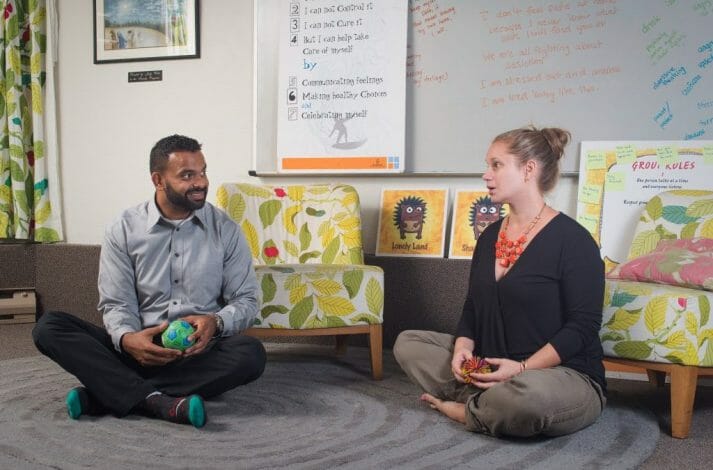Ask a Family Therapist
with Sunil Boodhai, MSW (RSW), BEd., manager of Renascent’s Family Care Programs, therapist and counsellor.
Q: My brother and I both went to visit our parents during the December holidays. My brother has an obvious issue controlling his alcohol consumption but during the entire visit, while he was intoxicated and causing general chaos at dinner, nobody said anything. I felt uncomfortable, but everyone ignored the problem and pretended nothing was happening. Is this normal? Why is everyone reacting this way?
A: This is a great question because incidents like this happen more often than we realize. I think we’ve all been to a party or a wedding where there is that one person who is having trouble controlling their alcohol intake. There is a sense of awkwardness and some people may even laugh, but there is a real problem there that we aren’t considering. When it’s a direct family member, it becomes even harder to ignore, as you experienced during the holidays.
In family treatment at Renascent we call this “the elephant in the living room.” In this situation, there is an obvious problem occurring, but everyone is prioritizing other people’s feelings over their own, so nobody says anything about it. So, for example, you knew there was a problem with your brother but you did not say anything because you were probably concerned about the feelings of your parents and everyone else in the room. You didn’t say anything because you didn’t want to “ruin” dinner and cause problems for any of your family members. The reality is that your brother was the one ruining dinner and causing problems, but your concern for other people’s feelings caused your to believe if you said anything, you would be the one ruining dinner. Also, everyone else around the table was aware of exactly what was going on but out of concern for everyone else, they didn’t say anything either. Everyone was taking care of everyone else and therefore nobody addressed “the elephant at the dining room table.”
The startling thing here is that elephant has another name, and that name is addiction. The only way to deal with the elephant is to name it, but naming it means so many things to people. For one thing, it’s the admission of a major mental health issue. In addition, family members worry that they did something to cause the addiction. At times they might do something to control it, like making sure there is no alcohol in the house. And finally, family members hope that the problem will just go away on its own. So nobody talks about it.
Addicts are not the only people to sometimes be in denial about their addiction — families suffer from levels of denial as well. The concern here is that addiction depends on not being named in order to continue. If nobody ever says anything to your brother about his addiction, then the hope for change and sobriety are slim. Maybe a holiday dinner isn’t the right place to start the conversation, but it has to get started one way or another. If this is a concern for you and you want the best for your brother, you have to be brave enough to name the addiction with the confidence of knowing you are doing the right thing for you and for everyone else concerned.

